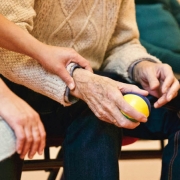Nursing for Home
Nursing for Home: What it means?
The search intent behind the query “nursing for home” could be several things, depending on the context:
- Live-in Care: The user wants to find a live-in carer.
- Home Health Care Services: The user may be looking for nursing or healthcare services that are provided in the home. This could include services such as skilled nursing, physical therapy, occupational therapy, or general caregiving.
- In-Home Nurse Hiring: The user might be seeking information on how to hire a nurse for home care, such as for elderly care, post-surgery care, or for a person with a disability or chronic illness.
- Nursing Techniques at Home: If the person searching is a family caregiver, they might be looking for resources on how to provide basic nursing care at home. This could include wound dressing, medication management, or handling mobility issues.
- Nursing Home Information: While less likely, the user might have meant “nursing home” and is looking for information on nursing homes, such as cost, services provided, or how to choose one.
- Home Nursing Courses: The searcher could also be interested in learning about courses or certifications related to nursing, to either start a new career or enhance their existing healthcare skills.
In the context of this article, we will operate under the assumption that most individuals searching for “nursing for home” are actually seeking information about live-in care services.
Introduction
In an age where personal comfort and familiarity hold paramount importance, home nursing services have become increasingly popular. These services offer personalized care to those in need, right in the comfort of their homes. As Ireland’s aging population increases, so does the demand for quality in-home nursing care. If you’re researching the term “nursing for home”, you may be seeking essential information about home care services, particularly live-in care. In this guide, we will explore what live-in care entails and how it may be the right choice for you or your loved ones.
What is Home Nursing or Live-in Care?
Home nursing, also known as live-in care, is a service that enables individuals who need assistance with daily activities to remain in their homes while receiving professional medical or personal care. This type of care is typically provided by qualified nurses or care professionals who live with the individual and provide round-the-clock services. It is ideal for seniors, people recovering from surgery, or individuals with chronic illnesses or disabilities who require constant care.
Benefits
The primary benefit of homecare (nursing) is the opportunity for individuals to remain in their familiar environment. They can maintain their daily routines and lifestyle, which is particularly beneficial for those with cognitive issues such as dementia.
In addition, live-in care ensures one-on-one attention and personalized care plans, tailored to the individual’s specific needs. This level of personalized care can often exceed what is typically available in institutional settings like nursing homes.
Live-in care also provides peace of mind for family members, knowing their loved one is in the capable hands of a dedicated caregiver at all times.
Choosing Home Nursing Services in Ireland
The process of selecting the right live-in care service can feel daunting, especially when you’re striving to ensure the best care for your loved one. To start, consider the qualifications, experience, and specialization of the caregiver. Platforms like LiveInCare.ie are dedicated to matching families with qualified and compassionate caregivers based on specific care requirements.
Costs are another crucial consideration. In Ireland, the homecare costs can vary based on the individual’s needs, the level of care required, and the agency or person providing the service. Some insurance policies cover home nursing, so be sure to check the specifics of any relevant insurance policies.
The laws and regulations surrounding care services in Ireland are designed to protect both the care recipient and the carer. Care agencies must comply with the Health Information and Quality Authority (HIQA) standards, which ensure high-quality, safe care.
Understanding the Distinction: Home Nursing vs. Live-in Care
The terms “home nursing” and “live-in care” are often used interchangeably, but there can be distinct differences, particularly in the level of care provided and the qualifications of the carer.
Home nursing typically involves the services of a registered nurse or licensed practical nurse who can provide medical care in the home. This might include managing and administering medications, wound care, monitoring vital signs, and providing other medically necessary treatments. Home nursing is generally suitable for individuals who have more complex medical needs that require the expertise of a healthcare professional.
Live-in care, on the other hand, often involves a caregiver who lives in the home and provides assistance with activities of daily living (ADLs), such as bathing, dressing, toileting, feeding, mobility, and medication reminders. While these caregivers are typically well-trained in providing personal care and supporting individuals with their daily activities, they might not be equipped to handle complex medical procedures or needs.
However, the boundaries can blur, and in some cases, live-in care providers may have more advanced training or nursing qualifications. It all depends on the specific needs of the individual requiring care and the qualifications of the hired caregiver. It’s crucial to clearly understand the care recipient’s needs and ensure that the caregiver or nurse hired has the appropriate skills and qualifications to meet those needs.
Conclusion
Homecare is a viable option for those who require assistance but wish to stay in their own homes. By understanding what live-in care entails, you can make an informed decision for you or your loved ones. With trusted platforms like LiveInCare.ie, finding a compassionate, professional carer in Ireland has never been more accessible.







 Live-in Care
Live-in Care liveincare.ie
liveincare.ie liveincare.ie
liveincare.ie